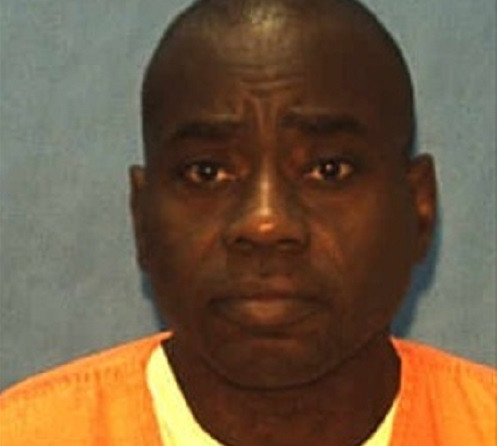Florida: Witness Scream 'Die' as Robert L Henry is Executed for Setting Women on Fire

A man convicted of killing two women by beating them with a hammer and setting them alight has been executed by lethal injection in Florida.
One witness to the execution shouted "Die!" as convicted murderer Robert L. Henry read his final statement on Thursday.
Henry was convicted of murdering co-workers, Phyllis Harris, 53, and Janet Thermidor, 35, who worked with him at the Deerfield Beach fabric store in 1987.
Henry, 55, was pronounced dead at 6.16pm after he was administered the injection at the Florida State Prison.
Prior to his death, he read a three-minute statement apologising for his crimes. He said he hoped his death would comfort the families of the victims but criticised the death penalty, saying thieves do not have their hands amputated as retribution.
He said: "Why then do we continue to be the murderers of those who have murdered?"
An unidentified family member of one of the victims then shouted: "Die!" The comment was not audible though the glass partition between the witnesses and the inmate.
Henry was sentenced to death after a last-minute reprieve from the United States Supreme Court failed. The Florida Supreme Court rejected his most recent appeals last week, making Henry the fourth person executed in the state this year.
According to CBS, Henry's lawyers stated midazolam, one of the drugs used in lethal injections, could cause a heart attack and extreme pain as Henry suffered from coronary artery disease, high cholesterol levels and high blood pressure. They cited the Eighth Amendment's prohibition against cruel and unusual punishment.
The Florida attorney general's office responded that there was no requirement for a hearing for each inmate who claims they may suffer some level of pain in the execution process. According to the prosecution, five death row inmates had previously been executed "without any mishap" using the newer drug combination.
At Henry's 1988 trial, Michael Satz, a Broward Couty prosecutor, said: "You talk about atrocious, heinous, cruel, vile or wicked. He literally burned them up. This is a case that nightmares are made of."
Initially, Henry told police the crime was committed by an unknown assailant. However, Thermidor lived long enough to identify her attacker.
The incident occurred in November 1987, when Henry approached Harris and told robbers had told him to tie her up and blindfold her. He then took her to a toilet and tied her to a urinal, before returning to the shop's office where he hit Thermidor over the head with a hammer.
Henry then doused Thermidor in flammable liquid and set her on fire, before returning to Harris and attacking her in the same way. The body of Harris was discovered when authorities responded to the fire, but Thermidor was found alive. She survived for 12 hours after the incident and gave a statement, which led investigators to charge Henry.
Largely based on Thermidor's statement, he was convicted of two counts of first-degree murder, armed robbery and arson. Henry's lawyers claimed Thermidor never said she saw Henry on tape and that police had coerced his confession.
© Copyright IBTimes 2025. All rights reserved.






















